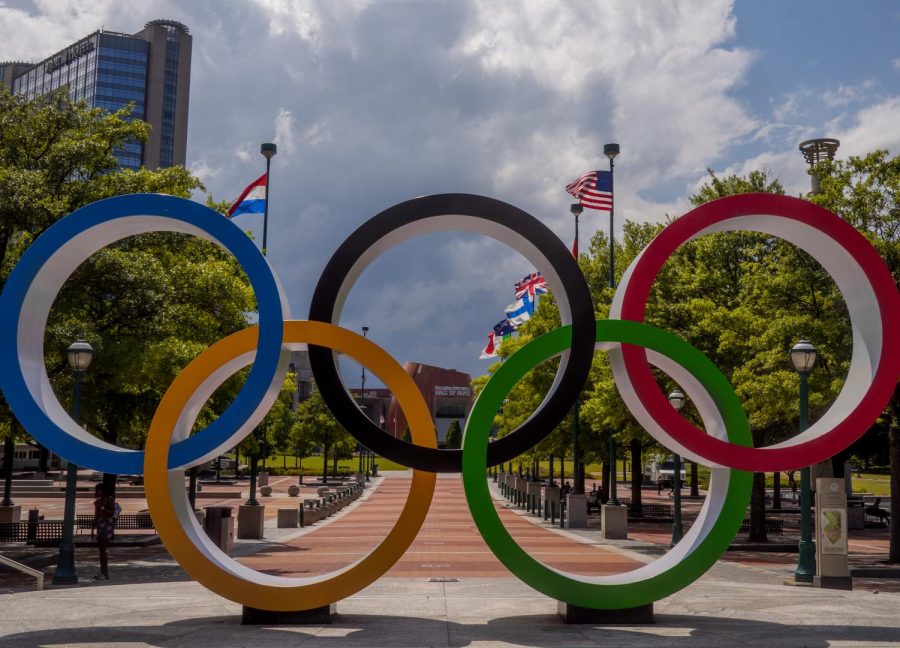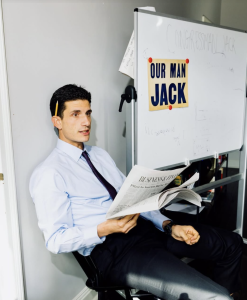Athletes and fans should give the Tokyo Olympics a chance
June 24, 2021
The 2020 Tokyo Olympics were canceled in response to the COVID-19 pandemic. A year later, the Olympics are expected to return on July 23, but many fans, officials and doctors have called for the International Olympic Committee to cancel the event over health and safety concerns.
However, the Games should still go on because there’s a lot of progress and planning that’s already happened and it would be fair to athletes to hold them.
Currently, Japan is battling a fourth wave of infections and a state of emergency is in place in Tokyo. Hospitals have been overwhelmed and shortages of medical staff have made the situation worse. This has nearly 70% of Japan’s population wanting to cancel the Olympics, BBC reported.
“My priority has been to protect the lives and health of the Japanese population …” Japanese Prime Minister Yoshihide Suga said.
The Tokyo Medical Practitioners Association, an organization of about 6,000 doctors, wrote a letter asking for the Games to be canceled and submitted it to Olympics organizers. A petition was also created to demand the cancelation of the Games.
When the 2020 Tokyo Olympics were canceled, there was less information known about COVID-19, there were more restrictions and there were no vaccines, but there have been improvements since then. Now, five vaccines are available to protect people from getting infected.
Also, there has been ample time for the IOC and Tokyo officials to prepare for the Olympics. The IOC expects 80% of athletes to be vaccinated, although vaccines aren’t required, according to NPR.
Organizers even have a playbook that will be finalized soon to outline “a series of countermeasures that they say will ensure the Games can take place in a safe and secure way,” CNN reported.
IOC President Thomas Bach said IOC and Tokyo officials have offered to provide additional medical personnel, too.
Several competitions have been held to qualify athletes for the Olympics. Some of these events include the U.S. Track and Field Olympic Trials, the GK U.S. Classic for gymnastics and the U.S. Olympic Swim Trials.
At these events, athletes within the same sport are finally competing against one another to see if they’ve scored high enough to make it to Tokyo. Because these competitions have already happened, canceling the Olympics would mean that athletes will lose the opportunity to compete for another year.
Canceling the Games would be to “discard a generation of athletes who have spent over half their young lives in pursuit of this one moment,” World Athletics President Seb Coe said, according to CNN.
Athletes have also been using this extra year to improve their skills and push themselves. This means that athletes will have delayed relaxation because they’ll essentially be forced to keep training to compete in 2022 since they don’t want to slack and risk their chance to give their best performances.
“[Athletes] have channeled the frustration of forced shutdowns into opportunity, and that they feel refreshed by increased rest, less exhaustive travel, enhanced focus on training, healed injuries, creative improvisation and a less stressful perspective about sport,” The New York Times reported.
Regardless of crowds, some sports like basketball and hockey have returned, so it’s unfair to cancel the Olympics because it would be stopping some athletes from competing, while non- Olympic athletes can play.
Because the Olympics traditionally occur every four years, athletes may pass their peak ages, which may make it challenging for them to compete.
For instance, Simone Biles, arguably the greatest gymnast alive, said that despite her many medals, she gets teased by her younger peers because she is 24 years old, according to Insider.
“They have less years than me, so I feel like they’re a little bit fresher,” she said, “They can recover quicker.”
There’s a chance that Biles would have retired already if the Olympics had not been postponed.
With vaccinations being one of the primary concerns over canceling the Olympics, businesses have stepped in. SoftBank, Rakuten and Sony Corp. are among some of the companies that have worked to speed up the vaccine rollout in Japan. Only about 5% of the population has been vaccinated.
A solution to Japan’s problem could be to limit crowd size, impose mask-wearing and implement social distancing measures, which could be fine since the majority of spectators watch the Olympics on TV.
Overall, the Olympics would cost Japan and the IOC billions if they were to cancel and disappoint both fans and athletes.







